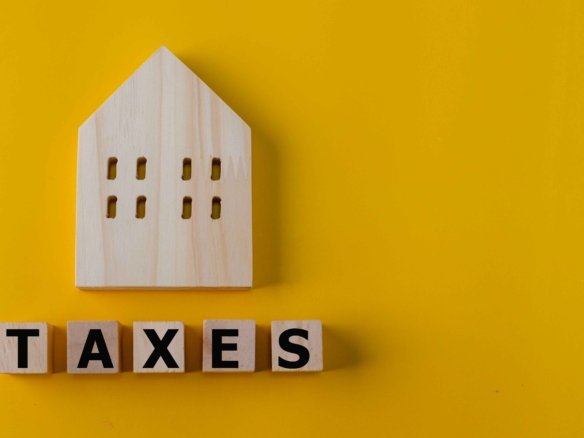Tax Deed Auctions have become an increasingly popular way for investors to acquire real estate at discounted prices. When property owners fail to pay their property taxes, counties across the United States often step in to recover the owed amount. Instead of allowing the property to sit idle, the county sells it at an auction, giving investors the opportunity to purchase valuable real estate for far less than its market value. This unique system provides a gateway to both short-term profit and long-term wealth-building strategies.
How Tax Deed Auctions Work
In a Tax Deed Auction, the winning bidder receives ownership rights to the property. Unlike other methods where investors only hold a lien, in this scenario, you walk away with the deed itself. This transfer of ownership happens once the winning bid is paid in full and the redemption period, if any, has expired. For many real estate investors, this is one of the most direct ways to secure a property without having to deal with traditional financing, mortgages, or lengthy negotiations.
Auction Tax Deed Versus Tax Lien Certificates
It is important to distinguish between an Auction Tax Deed and Tax Lien Certificates. While both methods are linked to unpaid property taxes, the outcomes are different. With a Tax Lien Certificate, investors purchase the right to collect the unpaid taxes plus interest, but they do not own the property unless the lien goes unpaid long enough for foreclosure. On the other hand, an Auction Tax Deed immediately transfers ownership of the property to the investor. This means that the strategy you choose should align with your overall financial goals and risk tolerance.
Why Investors Choose Tax Deed Auctions
Investors are drawn to Tax Deed Auctions for several reasons. First, the entry point is often lower compared to traditional real estate purchases. Properties may sell for only a fraction of their appraised value. Second, these auctions bypass many of the obstacles that come with traditional transactions, such as mortgage approvals and real estate agent fees. Finally, owning property acquired this way can open the door to rental income, flipping opportunities, or even long-term appreciation in growing markets.
Online Tax Lien Sales and Their Connection to Tax Deed Auctions
The rise of Online Tax Lien Sales has made participation in these markets more accessible. Instead of traveling to a courthouse or county office, investors can now bid on liens and deeds from their own computers. While Online Tax Lien Sales focus on certificates, many counties have also shifted their Tax Deed Auctions online. This digital approach has broadened the investor pool, creating both increased competition and greater opportunities for buyers who are willing to do thorough research before placing a bid.
Research is the Foundation of Success
The key to thriving in Tax Deed Auctions lies in preparation. Properties may come with existing mortgages, liens, or structural issues. Conducting due diligence helps investors understand what they are truly purchasing. This includes reviewing county records, property values, neighborhood trends, and any potential legal complications. By spending time on research, an investor reduces the risk of overpaying or acquiring a property that is more of a burden than an asset.

Flipping Properties from Auction Tax Deeds
One common strategy with Tax Deed Auctions is to flip the properties for quick profit. Investors who excel at renovations often choose this route. They purchase a property at a discount, make cost-effective improvements, and then resell it at a higher price. The appeal of flipping is the speed of returns, sometimes within months of the purchase. However, this approach requires capital for repairs, knowledge of the housing market, and the ability to handle unforeseen issues such as title complications or delayed sales.
Turning Auction Properties into Long-Term Rentals
For investors seeking steady income, turning Tax Deed Auction properties into long-term rentals can be a powerful strategy. By holding the property and renting it out, investors generate recurring monthly income while also benefiting from property appreciation over time. The rental approach is particularly attractive in growing markets where demand for affordable housing is strong. Unlike flipping, which relies on quick market timing, renting provides consistent cash flow and a hedge against inflation.
Balancing Risks Between Flipping and Renting
Choosing between flipping and renting ultimately comes down to risk appetite and financial goals. Flipping can produce faster gains but comes with higher upfront costs and more exposure to market swings. Renting delivers slower but more stable returns, making it a safer option for investors willing to play the long game. Many successful real estate investors use a blended approach, flipping some properties to build capital while holding others for rental income and long-term appreciation.
The Role of Online Platforms in Today’s Market
With the rise of Online Tax Lien Sales and virtual Auction Tax Deeds, the real estate investment landscape has shifted dramatically. Online platforms provide real-time bidding, access to county data, and even property images that were once difficult to obtain. While competition has increased, the convenience of bidding online allows investors to participate in multiple auctions across different states, creating broader opportunities for portfolio diversification.
Building a Long-Term Strategy with Tax Deed Auctions
Whether you lean toward flipping or renting, building a strategy around Tax Deed Auctions requires a clear plan. It is not enough to simply bid and hope for the best. Investors need to establish criteria for the types of properties they want, the maximum bid they are willing to place, and the potential return on investment they expect. By sticking to a disciplined approach, investors avoid common mistakes such as emotional bidding or underestimating renovation costs.
Creating Wealth Through Auction Tax Deed Investments
Over time, Tax Deed Auctions can be a powerful wealth-building tool. Investors who master the process often grow their portfolios significantly by acquiring multiple properties at below-market rates. The flexibility of being able to flip some properties while renting others creates a balanced approach that can withstand different market cycles. Whether the housing market is booming or facing challenges, properties acquired through Tax Deed Auctions often hold unique opportunities that traditional buyers overlook.
Conclusion: Flipping Versus Renting in the World of Tax Deed Auctions
The debate between flipping and renting properties from Tax Deed Auctions ultimately depends on the investor’s goals, resources, and risk tolerance. Flipping offers the allure of fast profits, while renting provides stability and long-term growth. Thanks to the rise of Online Tax Lien Sales and digital Auction Tax Deed platforms, participating in these opportunities has never been easier. By doing proper research and committing to a clear investment strategy, real estate investors can use Tax Deed Auctions as a cornerstone of lasting financial success.






Join The Discussion